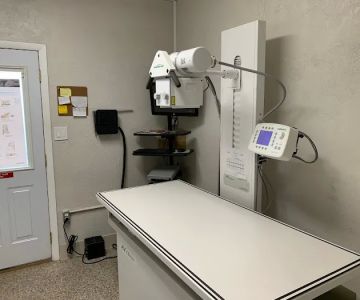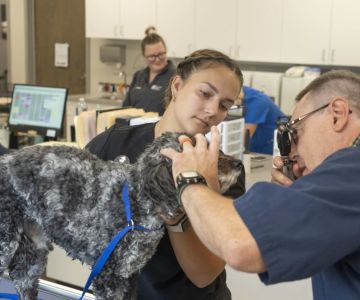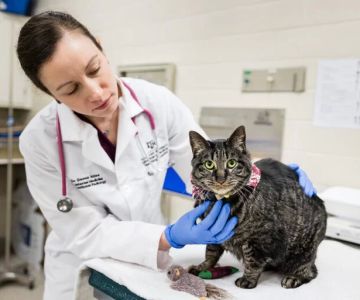- 1-Average-Hourly-Wage-for-Veterinary-Assistants
- 2-Factors-Influencing-Veterinary-Assistant-Pay
- 3-Career-Path-and-Earning-Potential-for-Veterinary-Assistants
- 4-Real-Life-Examples-of-Veterinary-Assistant-Earnings
- 5-Tips-to-Increase-Your-Hourly-Rate-as-a-Veterinary-Assistant
- 6-Taking-Next-Steps-in-Your-Veterinary-Career
1. Average Hourly Wage for Veterinary Assistants
Many aspiring veterinary assistants wonder, how much do veterinary assistants make an hour? On average, veterinary assistants in the United States earn between $12 and $17 per hour, though this can vary widely based on location, experience, and employer type.
This hourly wage reflects the critical support veterinary assistants provide in clinics, helping veterinarians deliver quality animal care. Their role includes handling animals, assisting in procedures, and performing administrative duties, which all contribute to the overall smooth functioning of veterinary practices.
2. Factors Influencing Veterinary Assistant Pay
Several key factors influence how much veterinary assistants make an hour, including:
2.1 Geographic Location
Urban areas or regions with a higher cost of living generally offer higher wages. For example, veterinary assistants in California or New York tend to earn more compared to those in rural areas.
2.2 Experience and Education
Veterinary assistants with formal training, certifications, or years of experience often command higher pay rates. Some employers also offer raises based on continued education or additional skills.
2.3 Type of Employer
Working in specialized veterinary hospitals, emergency clinics, or research facilities often results in better compensation than working in general small animal practices.
3. Career Path and Earning Potential for Veterinary Assistants
Veterinary assisting can be a fulfilling entry point into the animal care field with potential for growth. Many veterinary assistants advance to veterinary technician roles or specialize in areas like anesthesia or dental care, which offer higher salaries.
Investing in certifications such as the Approved Veterinary Assistant (AVA) credential or pursuing further education can significantly boost hourly wages and open doors to leadership positions within veterinary clinics.
4. Real-Life Examples of Veterinary Assistant Earnings
Take the case of Sarah, who started as an entry-level veterinary assistant earning $13 per hour at a suburban animal hospital. After completing her AVA certification and gaining three years of experience, her wage increased to $18 per hour. Her story reflects how skill development and tenure positively impact earnings.
Another example is James, working at an emergency veterinary clinic in a large city, earning $20 per hour due to the specialized nature of his work and extended hours. These cases show the diversity of earning potential depending on roles and environments.
5. Tips to Increase Your Hourly Rate as a Veterinary Assistant
To improve your hourly wage as a veterinary assistant, consider the following strategies:
5.1 Gain Certification and Advanced Training
Certifications add credibility and demonstrate commitment to your profession, making you more valuable to employers.
5.2 Seek Specialized Experience
Working in emergency clinics, specialty practices, or gaining skills in areas like anesthesia or lab work can increase your marketability and pay.
5.3 Network Within the Veterinary Community
Connections can lead to better job opportunities with higher pay or access to roles with greater responsibility.
6. Taking Next Steps in Your Veterinary Career
If you’ve been asking how much do veterinary assistants make an hour and are motivated to grow your income and skills, now is a perfect time to explore educational programs, certifications, and job openings that match your goals.
For resources, tools, and products tailored to veterinary professionals, visiting platforms like Hidden Brook Veterinary can provide valuable support and recommendations to boost your career success.
With dedication and the right opportunities, veterinary assisting can be both a rewarding job and a stepping stone to a fulfilling career in animal healthcare.











